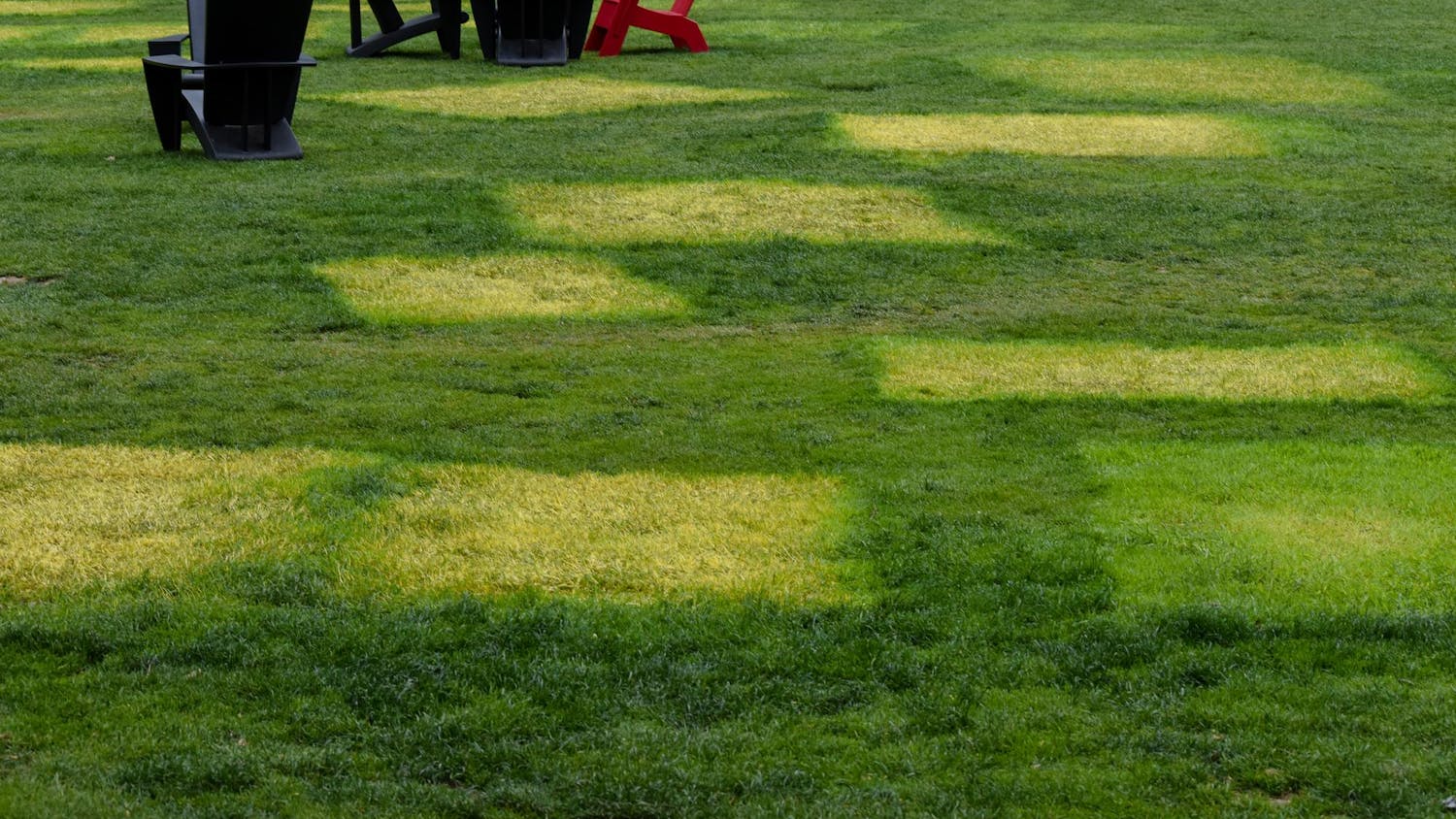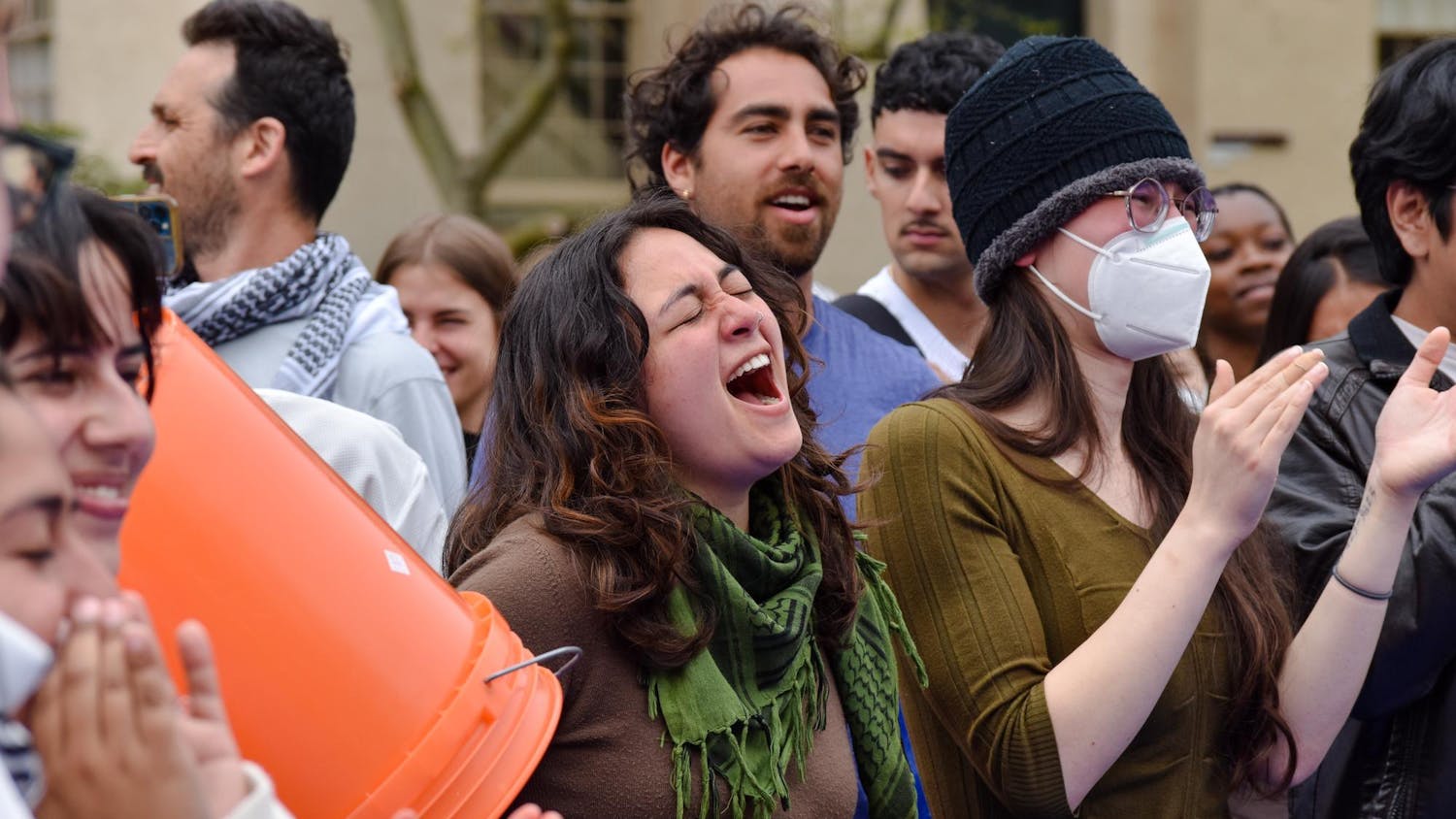As one of the world's most renowned repositories of rare books, the John Carter Brown Library has stood staunch and proud on the Main Green since 1904. But undergraduates need not be intimidated, said Edward Widmer, director of the JCB — the librarians don't bite.
Since taking the directorship in 2006, Widmer, along with his colleagues and the JCB's Board of Associates, have been interested in welcoming more undergraduates to the library.
"It's a world-class collection right here, footsteps away from Brown classrooms, and I think Brown students ought to know about these treasures," Widmer said.
Rich Ramirez '12.5 first started exploring the JCB as a first-year, and has worked with Widmer on a Group Independent Study Project. He said he hopes other students will take advantage of both the JCB's physical resources and the people who work there.
The Watts History of the Book Program is designed to help students do just that. Named for Professor Charles Watts II '47, the program features workshops, lectures and field trips targeted at undergraduates from both Brown and the Rhode Island School of Design. The program's organizers aim to host at least four to six events per semester, said William Twaddell, chair of the JCB Associates Advisory Council.
Through the Watts Program, Twaddell saw the opportunity to spark undergraduate interest in the JCB's "mystery book" — a text of unidentified authorship and origin encoded with a mysterious shorthand thought to be the handiwork of Rhode Island's founder Roger Williams. A group of students will look to decipher the code in a Group Independent Reading Project this spring.
Students can also take advantage of more formal academic avenues that use the JCB. Stephen Foley, associate professor of English and comparative literature and acting chair of the English department, taught ENGL 1190N: "Brown: Writing the Archive," which showed students how to find and use the information at the JCB. The library is an important part of both the University's and the city's history, he said.
But that does not mean the JCB is reserved for history concentrators, Foley said. A new exhibit, "Drugs of the Colonies: The New American Medicine Chest" focuses on New World pharmacology, and the JCB is interested in involving students from Alpert Medical School as well as undergraduate biology and environmental concentrators, Twaddell said.
Students interested in international development will also find the JCB useful, Widmer said. Following the 2010 earthquake in Haiti, the JCB was quick to help digitize Haiti's historical archives and play host to the country's national archivist. The JCB is also working on a project to digitize historical Peruvian books and will soon begin a similar effort with Brazil.
"I think anyone who loves Brown and is proud of its academic distinction ought to be really proud of the JCB," Widmer said.
The library started offering a reduced-fee membership — $15 per year — to Brown and RISD students last year. The membership includes invitations to all of the events hosted by the JCB associates, special lectures, a newsletter and free books specially crafted for members.
"We're actually losing money on the $15 associates, but it's worth it to have students around," Widmer said. He counts on students to ask "impertinent" questions, which are often some of the best, he said.
"The more hands, the more eyes that are put in front of (the JCB's books), the more we'll discover," Foley said.
But until recently the need to preserve the library's rare and valuable holdings made it difficult to open the JCB up to a wide public, since librarians had to be selective about when and for whom they could pull out the books.
Digitization is changing all of that. "Now that we can scan the books beautifully, we're really in a time of wanting to expand readership," Widmer said. "It's a great time to engage young readers."
It helps that students are more comfortable with these new technologies, Foley said. He said he thinks digitization will attract new audiences now that entire library collections are available at the push of a button.
At the same time, he said he thinks it is important to teach young readers to value the original objects. "Even if you're going from a splendid, high-quality digital image to a book, you have a different experience," he said. In a way, these new technologies make the original books seem even more unique.
Widmer said he hopes Brown students stay connected to the library after they graduate. A large membership spread across the United States and the world is an asset, he said.
But while students are on campus, they are always welcome at the JCB, Widmer said. "The books may be old, but there's no reason that the readers have to be."




